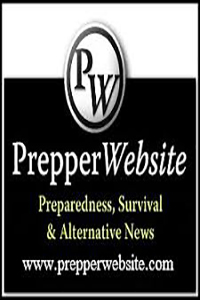For your consideration, a short story.
***
You don’t know much as there has been no real information put out for a few weeks now. All you know is that 2 weeks ago you were sifting through your mail after coming home from work and the power went out, and it has yet to come back on. Your cell phone doesn’t work, and while your car still runs it is dangerously low on fuel. Gas stations have no fuel, ATMs have no cash (not that it would be worth anything) and stores have long since been looted. You are afraid to leave the confines of your neighborhood because law enforcement is nowhere to be found and roaming bands of evil doers are rumored to be out in force. Two weeks ago you went to work content to sit through meetings, send out emails, surf prepper blogs (on company time) and drink mocha lattes. Things are very different now.
Thankfully you were a prepper before the lights went out and you suspect this grid failure has something to do with a cyber attack on the country, but you cannot confirm it. You have supplies to sustain you and your family for quite some time and you have started to discuss plans of action on how to survive long term within your community. There has been one huge (and unexpected) problem though, people are starting to get injured on a regular basis and you are struggling to cope. Thankfully a neighbor’s wife worked as an ER nurse and she has been able to help but this rash of injuries is depleting your community. Bob across the street almost chopped clean through his calf muscle trying to split firewood for the first time. Tony, your next door neighbor, was trying to work on his car (he isn’t a mechanic) when it slipped off of a jack stand and crushed his hand. You haven’t been immune either, while you try hide it you are quite certain you slipped a disc in your back when trying dig a pit for trash disposal.
***
I would submit that the examples I listed out in the above story are not only possible but highly likely to occur in a post SHTF world. The vast majority of society as we know it is not prepared to exist in a world where hard work in order to survive is the rule rather than the exception, and preppers are not exempt. You might have some “pioneer tools” which you purchased at Lowes a few years ago but how much time have you spent splitting wood or swinging a sledge between trips to the office? How many pits have you dug with that pick axe hanging on your shadow board? What is it really like to work outside all day in the hot sun, how quickly would you fall victim to heat stroke? The reality of the situation is this: the majority of our society lead sedentary lives which not only contribute to the current obesity epidemic, but will also make injuries much more prevalent if a true SHTF/TEOTWAWKI scenario unfolds.
Fifty years ago, about half of private-industry jobs in the United States involved some kind of physical activity, things such as farming, mining, construction and manufacturing. Today, that number is less than 20 percent, thanks to the dominance of jobs in retail, education and business. The authors estimated that 100 fewer calories going out every day would result in a weight gain in line with what the U.S. population has seen since 1960.
The lack of jobs in our society which truly demand physical work has fallen dramatically since the 1960’s, as such not only have our waistline’s expanded our ability to perform real work has almost vanished. In today’s world not being able to turn spreadsheet data into a PowerPoint presentation on time get’s you a nasty email from your boss. In tomorrow’s post SHTF world not being familiar with the safe use of tools, firearms or machinery could get you seriously injured or worse.
“You see the manufacturing jobs plummet and realize that’s a lot of physical activity,” Dr. Church said. “It’s very obvious that the jobs that required a lot of physical activity have gone away.”
In order to mitigate the risk associated with these potential problems it becomes necessary to develop a simple plan of action. This involves the following:
Identify the risks
- Sedentary lifestyle: Body not used to physical work
- Not familiar with using basic tools
- Doing jobs outside of scope of expertise (farming, mechanic, tactical operations)
- Confrontations with evil doers (looters etc)
Assess the potential hazards associated with those risks
- Heat stroke, sprained/pulled muscles, over exertion
- Injury associated with cutting, maiming one’s own body
- Unfamiliarity with equipment or processes leads to injury
- Gunshot wounds, stab wounds, burns
Develop ways to mitigate (control) those risks
- Implement physical fitness plan which includes strength building and cardio fitness
- Practice using tools like axes, saws, chainsaws (assuming you can get fuel), hatchets, sledge hammers
- Learn a few new skills, buy hard copy “how to” manuals, identify people who have skills within your community
- Develop security plan, avoid confrontation and highly dangerous areas, lay low (incognito)
Put those plans into action (if SHTF / TEOTWAWKI happens)
- Ensure people are monitored closely for signs of physical exhaustion or injury. No “tough guys” allowed
- Make sure qualified individuals are in place to monitor “newbies” using dangerous tools
- Do not attempt to complete jobs outside of expertise unless absolutely necessary (e.g. I’ve never changed my oil but I’m going to pull a motor out of a car)
- Strength in numbers (read: community), those who are weak and divided will be far more susceptible than those who stand together
In a post SHTF world avoiding injury will be key to survival. Although people tend to visualize gunshot wounds as the main threat to one’s health simple things like sprained backs, lacerations and broken bones will be far more prevalent because people are simply not used to laboring to survive. Don’t procrastinate, become engaged in your survival plan now so you will avoid pain and injuries in the future. I believe George S. Patton put it best: “A pint of sweat will save a gallon of blood.” Good luck.









Recent Comments